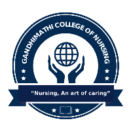Gandhimathi College Of Nursing
Gandhimathi College of Nursing is a herald that Smt. G. Gandhimathi Educational Trust as extended its devotion to the young aspirants to realize their dream of becoming a nurse. The year 2022 envisaged the cherished ideas come true in the form of establishment of new nursing College in the name of Gandhimathi college of Nursing.
Quick Link
Contact Info
- 68/2D2, Villupuram Road, Nallanpillaipetral Village, Pallikondapattu Post, Tiruvannamalai, Tamilnadu. 606611.
- +91 94432 24618, 8056126530, 9443033252, 9442604770
- gandhimathinursingcollege@gmail.com

